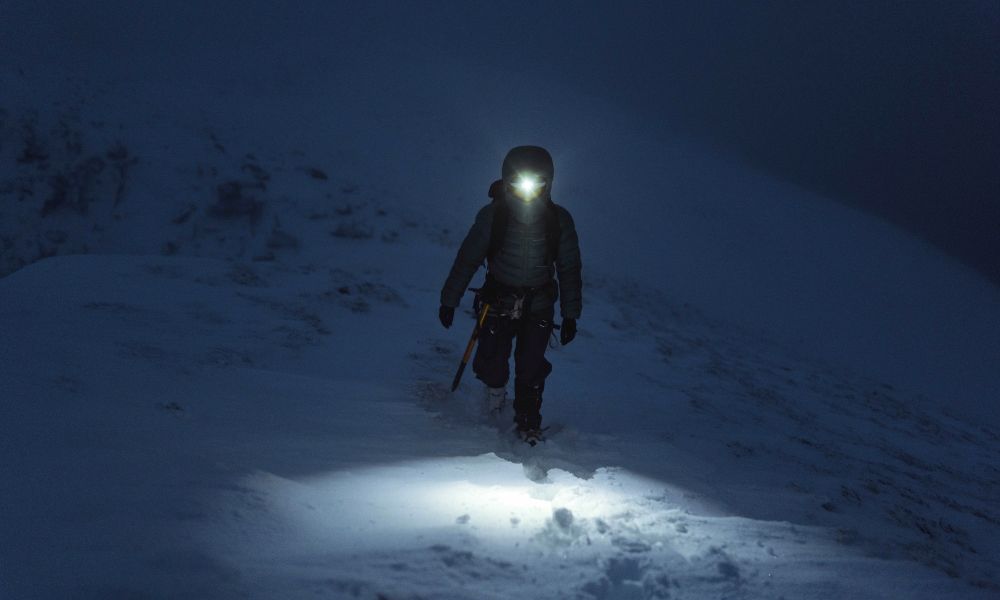Hiking at night makes the adventure more of a challenge. The additional difficulty makes hiking at night different than the average daytime hike.
Don’t show up unprepared! Here are some things you should expect when hiking in the dark.
Prepare for Chilly Weather
You’ll need winter thermal wear without the sun to warm you up! Temperatures will drop at night, so you’ll need more layers for warmth. Base layer clothing and a light jacket are great for hiking at night to remove moisture and retain heat.
You’ll Need Several Lights To Hike Safely
As your eyes adjust to the lack of light, you’ll also need some lights to illuminate the trail. Before starting on the trail, sit in the darkness for a few minutes. Then, incorporate the lights.
Headlamps, a flashlight, and some extra batteries will help you travel safely through the darkness. You’ll become more aware of the terrain and surroundings despite minimal light.
Always Stay on the Designated Trail
Staying put on the designated trail is crucial to your safety, whether it’s day or night. The paved path protects you from venturing into unknown areas or from becoming lost. Since the darkness hinders your sight, always use your lights, directional tools, and common sense to keep you on the right path.
Bring a Map and a Compass
During the night, losing your way becomes more frightening. It’s difficult to see and understand your surroundings. A compass and a map can come in handy when you need extra help. It will redirect you to where you need to go so you can return to the trail and back home with ease.
Be Aware of Wildlife
Due to humans’ presence in nature and the relaxing cool temperatures, some animal species are more nocturnal than others. If you’re hiking at night, you should expect to see more wildlife around the trail.
Remember to avoid interacting with the animals and keep food tucked away in your backpack. While it’s thrilling to see an animal in its natural habitat, it’s important to keep yourself and the animal safe by avoiding contact.
Plan Where You’ll Stop for the Night
Are you hiking and then driving your car back home? Or will you camp in the woods for the night? No matter which you choose, always have a plan for where you want to stop your hike.
If you’re setting up camp for the night, be sure to research the trail so you have a guaranteed safe location to sleep. Pay attention to the park’s regulations so you can efficiently prepare for a comfortable night under the stars.
Choose a trail with the appropriate terrain and length when you want to hike during a peacefully cool night but make it home in time for bed. You want to guarantee you don’t become tired or get home later than desired. As you research the trails before your trip, keep this factor in mind so you can ensure a great nighttime hike!



















































